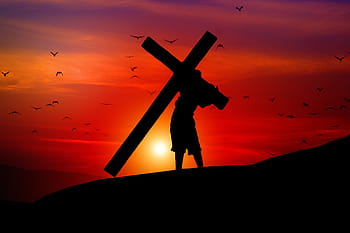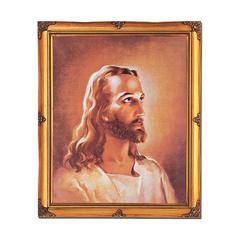
His studies for the day completed, Jan Hus made his way through the town square, singing for alms to pay for his lodgings and to cover his tuition at the university. Today he ambled from place to place sometimes singing only one hymn before changing his location. In addition to hymns he sang gospel choruses in the Cezch language and even a few folk songs. His Latin hymns were the most popular. He stopped in a likely place and let his strong voice carry through the open square.
“Donna nobis . . .” He knew this might be his final opportunity to sing in the square. He was only a few weeks from graduation and then his ordination. After singing for alms in the market, he preached for a few minutes, declaring the gospel in the language of the people. Moving on from the appreciative crowd that had gathered, he noticed a young boy following him. He stopped a little farther along. When he finished singing there, the boy put a penny in his basket.
Before the boy moved away Hus spoke to him. “Thank you, son?”
The boy nodded. “This is not the first time I have heard you sing, but today I had a penny.” Jan fished through the few coins in his basket and found the boy’s penny.
“I believe such a music lover should be allowed to listen for free,” he said, as he returned the coin.
“My name is Mik,” the boy supplied, stowing the penny in his satchel. “The priest sent you to our flat when I was sick. You prayed for me by name. I had never heard anyone say my name in a prayer. Until then, I didn't know you could pray in Bohemian.”
‘Ah yes, You are Michael Flynn. I thought you looked familiar. You are some distance from your home.”
“I was sent with a message for a storekeeper just off the square. That is how I got the silver penny.”
“But I am not the first to pray for you by name,” Hus said. “Jesus prayed for you. He said, ‘I do not just pray for the disciples who have followed me, but also for those who will believe in me through their word.’ That is us, Mik. Jesus prayed for you and for me.”
“But he couldn’t have known my name.”
“Oh yes. The Bible says he calls his own sheep by name. Can you read?”
“I have been to school some. I can read Czech.”
“Come with me to my quarters. I have translated some of The Gospel of John into Czech. I want to show you something in it.”
Mik looked around him. “I can probably come with you if we don't take too long.” Jan led the way toward the University housing. The boy followed him up narrow stairs to a long hallway. They passed several others in the cramped space. Jan threw back the curtain at the doorway to his room. He lit a small lamp and searched his desk for several pieces of parchment. Finding what he was looking for, he held a page out to the boy. Mik stared at the page and struggled with the words.
Jan let him read some before stopping him. “Read this verse.” He put his finger on a line.
Mik read, “I have showed thy name to those men, which thou hast given to me of the world.”*
Jan said, “Not only does our Lord know your name, he is teaching us his Father’s name.”
Mik asked. “Is his Father’s name God or maybe Jehovah?”
Jan patted him on the back. “That is pretty good. I suppose those are God’s names in a way. But I don’t think that is what Jesus is getting at. Look down to another verse.”
Mik read again where Jan pointed. “I pray for them, I pray not for the world, but for them that thou hast given to me, for they be thine.”
“Read on further,” Jan said.
Mik continued to read, stumbling occasionally. “And all my things be thine, and thy things be mine; and I am clarified in them. And now I am not in the world, and these be in the world, and I come to thee. Holy Father, keep them in thy name, which thou hast given to me, that they be one, as we be. While I was with them, I kept them in thy name; those that thou gavest to me, I kept, and none of them perished, but the son of perdition, that the scripture be fulfilled.”
“Now,” Jan said, “skip all the way down to the final verse on this page.”
Again Mik read where Hus pointed. “And I have made thy name known to them, and shall make known; that the love by which thou hast loved me, be in them, and I in them.” Mik looked up and said, “I don’t understand any of this.”
“To tell you the truth,” Jan answered, “I don’t understand much of this either. But what I am beginning to understand is important. Jesus is introducing us to his Heavenly Father. Do you know what your name means?”
Mik answered, “I think it was the name of an archangel or something.”
“That is right, son. And it meant, ‘Who is like God?’ But when I prayed for you by name like Jesus prayed, I did not mean any written meaning. To me your name meant you, everything about you. Well, Jesus is bringing us into intimacy with God. His name is His person. Jesus is helping us to know himself and his Father personally. In Jesus we come to know God Himself. God’s name also speaks of His nature and character. By his life and his words Jesus shows us what God is really like. Your surname is Flynn. Your father gave it to you. So Jesus gives us his Father’s name.”
Mik said, “My father gave me both of his names.”
Jan said, “That is like what God has done. We bear His name because we have become His sons. We are part of God’s family. We share God’s legacy with our Lord Jesus. And if you are a child of God you need not fear anything, not even death. As God’s name is clarified on the Earth, everyone will see His glory. By His Spirit our lives will declare His glory to others.”
Jan then said, “Mik, I want to give you this sheet with the prayer Jesus prayed for us written in Czech. I want you to memorize it. Read each sentence over and over again asking God to speak to you as you read. When you can say the whole passage from memory, come and find me. We will talk about what God continues to show us.” The boy was overcome by the gift. He carefully rolled the parchment into a scroll, and with a string unraveled from his shirt, he tied it securely. Jan walked him back down to the square. Starting for home, Mik’s mind was filled with wonder.
This story comes from John 17.
*I printed these verses from Wicliff’s translation of the Bible. Huss was in correspondence with Wicliff. And he translated portions of the New Testament into Czech from Latin like Wicliff, rather than Greek.
Lord Jesus, continue to reveal to us the Name given you by your Father.
Help us to know You more and more.
http://thinkinginthespirit.blogspot.com/
http://theanchorofthesoul.blogspot.com/
http://watchinginprayer.blogspot.com/
http://writingprayerfully.blogspot.com/
FaceBook
https://www.facebook.com/bdavidyoung49
Website
http://daveswatch.com/
YouTube
https://goo.gl/PyzU
Amazon Author's Page
Amazon Author Central


